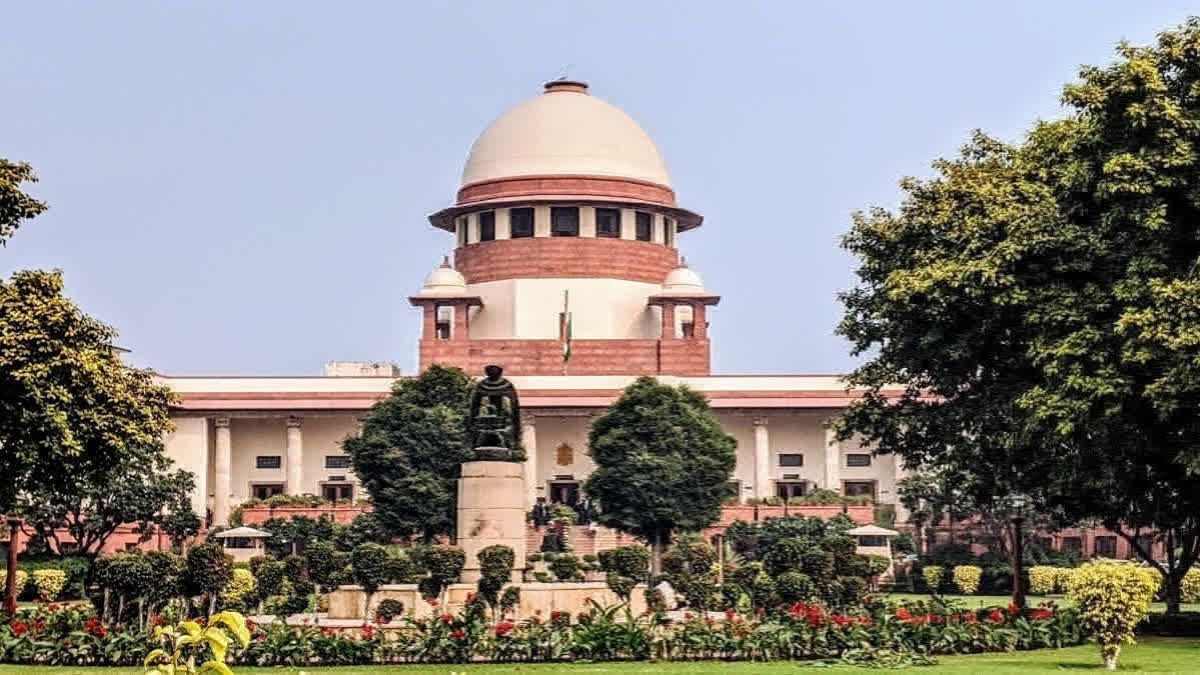New Delhi:The Supreme Court on Friday said a minister is not entitled for a special consideration for the grant of bail and stressed that official positions, regardless of their stature, lose their relevance for the purpose of exercising judicial discretion judiciously, while granting conditional future bail to former West Bengal minister Partha Chatterjee.
Chatterjee has been in jail in connection with a money-laundering case related to the alleged cash-for-jobs scam in the state.
A bench comprising Justices Surya Kant and Ujjal Bhuyan said the argument that the appellant’s (Chatterjee’s) position as a minister entitles him to any special consideration does not hold merit from either perspective. The bench said impartiality is a prerequisite to the rule of law, wherein decisions are based on the factual matrix of the case as opposed to the individual’s position or influence.
"In this vein, this court has emphatically clarified that while an accused person’s official status should not be grounds for denying bail, it also cannot constitute a special consideration to grant bail if otherwise no case is made out to provide such relief. Official positions, regardless of their stature, lose their relevance for the purpose of exercising judicial discretion judiciously," observed the bench.
Chatterjee, who has been suspended from the Trinamool Congress (TMC), will not come out of jail though as he has also been arrested in other cases related to the "scam".
The bench said the claim of the appellant (Chatterjee) must be examined through the lens of various pleas he has taken to highlight his mitigating circumstances as well as the adverse impact it may cause in the wake of allegations of playing with the future of thousands of well-merited aspirants and the undue benefits accrued to undeserving persons at the cost of these unsuccessful candidates.
"The statement of the Appellant’s close associate(s) recorded under Section 50 of the PMLA assumes enormous significance, as it constitutes prima facie evidence linking the Appellant to substantial heaps of bribe money recovered from the associate’s residence and company premises," said the bench.
However, the bench said it cannot be oblivious to the settled principles that a suspect cannot be held in custody indefinitely and that undertrial incarceration should not amount to punitive detention. The bench said it is worth reiterating that this court, through a catena of decisions, has consistently emphasised that prolonged incarceration of an accused awaiting trial unjustly deprives them of their right to personal liberty.
"Even statutory embargoes on the grant of bail must yield when weighed against the paramount importance of the right to life and liberty under Article 21 of the Constitution, particularly in cases where such incarceration extends over an unreasonably long period without conclusion of trial," said the bench.
The bench added that it is a well-established principle that the grant of bail would depend on the unique circumstances of each case, balanced against settled factors, such as the gravity of the offence, the nature of the allegations, the likelihood of interference with the ongoing investigation, the possibility of evidence tampering, threatening or influencing material witnesses, the societal impact of such release and the risk of the accused absconding.
The top court noted that Chatterjee was arrested by the Enforcement Directorate (ED) on July 22, 2022 and has been in custody since then.
